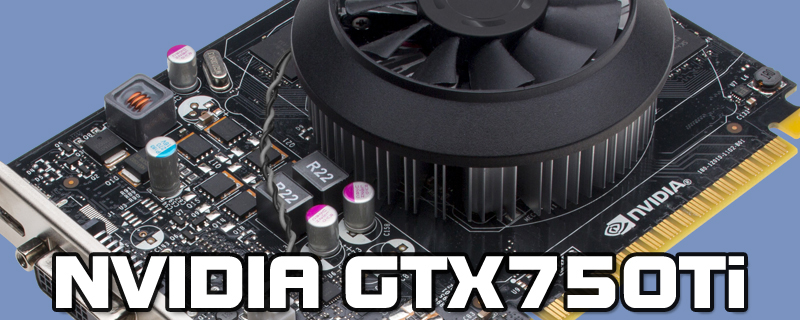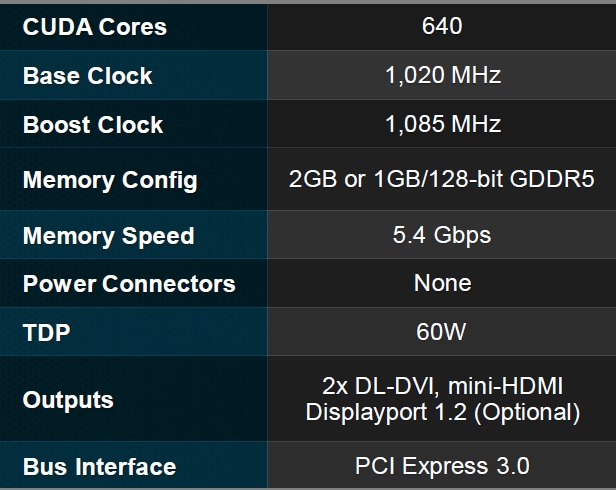Nvidia Maxwell GTX 750 Ti Review
Introduction
To anyone who keeps up with the endless revolutions in graphics technologies, today’s review will come as a little bit of a surprise. Normally a manufacturer will release their all-singing and dancing model first, and gradually reduce the amount of architecture in subsequent models as you drip down the price, and thus performance, ladder.Â
For the latest Maxwell architecture nVidia have gone the opposite route and started with a low end, low power graphics card, the GTX750 and GTX750Ti. It might be tempting to cock a quizzical head but it actually makes perfect sense. The big selling point and major driving force in this new GPU is energy efficiency. With the monstrously powerful high-end Kepler GPU’s having the performance sewn up it seems an ideal time to take a step away from the quest for ever higher frame rates and use the latest design methodologies to improve the drain upon the planets resources.
Now we could bedazzle you with an array of technospeak regurgitated from the nVidia documentation, but if you’re truly interested in the tiny details you will want to read their complete press release anyway, so here is the précis. Careful tweaking of the logic and instruction work flow brings primary efficiencies when compared to the Kepler that preceded Maxwell. These refined Streaming Multiprocessor elements have been increased to five in Maxwell from the two available in Kepler. This whole improved and more powerful SMM is allied to a nine fold increase in L2 cache to reduce the amount of requests made of the GPU and this, as a whole enables Maxwell to give double the performance per Watt of it’s predecessor.
Or, to put it in absolutely simple terms, the GTX750Ti is as powerful as a GTX480 whilst only consuming a quarter of the power, at 60W TDP.
Technical Specifications
As a low-power offering it’s not surprising that the GTX750Ti isn’t a monster in the specification department. However that low price, coupled to the high efficiency, mean that it’s potentially a good performer in the target market.




